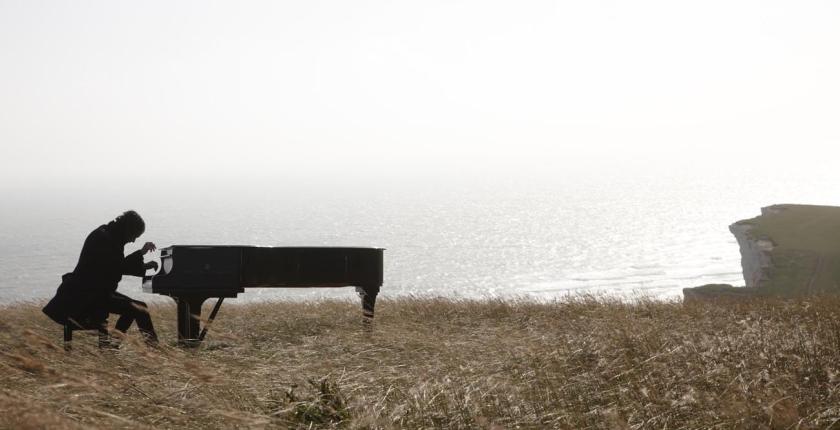Most of us could compile soundtracks to our lives. We’d probably save our favourite songs and pieces for the worst bits. Pianist James Rhodes was sectioned in his twenties and maintains that a visitor who smuggled in an iPod stuffed with classical music helped to save his life. He’s refreshingly candid though, admitting slyly that “listening to a piece of Bach isn’t going to fix everything".
Look at Rhodes’s garish website or listen to the banter on his latest live CD and you might be tempted to switch off. You'd be wrong; here, he’s an articulate host – humble, modest and engaging. Rhodes’s grand piano is schlepped into an imposing, rural psychiatric hospital. He follows, nervously worrying that the whole wheeze is a possible plot to get him readmitted without his consent. What sounds gimmicky on paper – Rhodes getting to know four very different patients, performing to each one to see what effect the music has upon them - proves to be riveting.
 The alarmingly young Kelly shows us a photograph of herself in happier times, yet her sparkiness still shines through. She suggests that "Rachmaninov" might make a good pizza name. Her response to a particularly loopy arrangement of Grieg’s In the Hall of the Mountain King is perfectly pitched - “You were actually good!” - and she correctly identifies the music as the Alton Towers theme tune. Rhodes faces a tougher job with the taciturn, inscrutable Jason. We watch his features slowly soften during a particularly doomy reading of Rachmaninov’s C# minor Prelude, a work from a composer with his own mental health issues. We don’t expect Jason to say much about music which expresses, in Rhodes’s words, “a good kind of sadness” and a confession that the prelude prompted “deep thoughts” is enough.
The alarmingly young Kelly shows us a photograph of herself in happier times, yet her sparkiness still shines through. She suggests that "Rachmaninov" might make a good pizza name. Her response to a particularly loopy arrangement of Grieg’s In the Hall of the Mountain King is perfectly pitched - “You were actually good!” - and she correctly identifies the music as the Alton Towers theme tune. Rhodes faces a tougher job with the taciturn, inscrutable Jason. We watch his features slowly soften during a particularly doomy reading of Rachmaninov’s C# minor Prelude, a work from a composer with his own mental health issues. We don’t expect Jason to say much about music which expresses, in Rhodes’s words, “a good kind of sadness” and a confession that the prelude prompted “deep thoughts” is enough.
Rhodes forms his strongest bond with Chrissie. We realise early on that the love of her son will make her win through; watching her and Rhodes discuss the pain of being a parent to a child you don’t often see is genuinely affecting. A Gluck aria transcription does seem to offer real comfort – most obviously in prompting Chrissie to speak with such clarity and honesty. You hope that the most upbeat story will close proceedings, so we’re introduced to recovering paranoid schizophrenic Nicky, for whom music already provides considerable release. Rhodes switches into major key sunlight with Schumann’s Widmung, and seeing the ebullient Nicky’s eyebrows lurch upwards during a particularly flamboyant passage is a delicious moment.
This is a film which would benefit from being longer. You’d prefer the camera to simply show us each patient’s facial expression while Rhodes plays, instead of having their voiceovers mixed in over the top. The closing captions reveal what’s subsequently happened to each protagonist. Wisely, there’s no attempt made to suggest that Rhodes’s intervention had any bearing on any medical outcomes. But the film serves to reinforce what most sensible people already know – that good music will invariably make us feel better.













Comments
Add comment